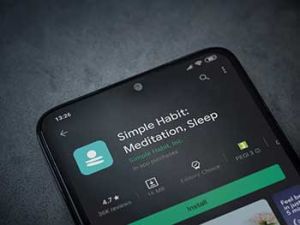It was 5:47 AM on a Monday. My phone alarm blared, promising a fresh start. I groaned, slapped “snooze,” and sank back into my pillows. My grand plan of “becoming a morning person” evaporated like steam. Sound familiar?
That was me – year after year – setting grand resolutions only to watch them fizzle by Wednesday. Sixteen years of broken promises to myself: diet plans, exercise streaks, writing routines, morning rituals. None stuck. I blamed myself, called myself lazy. But here’s what changed everything: I stopped seeing consistency as a mythical superpower reserved for the disciplined few. I realized it’s a learnable skill – one built by tiny actions, repeated day after day.
In this guide, you’ll discover the real secrets behind “how to be consistent” and “how to stay consistent,” so you never sink back into that snooze-button trap again.
Why Consistency Is Your Superpower
How many times have you devised these really grand plans where you’re going to do a complete overhaul and change your life for good?
When I used to get a new idea to accomplish a goal, I go all in. If I want to lose weight, I make elaborate spreadsheets and pretty planners and posters. I promise myself I’ll exercise 2 hours a day and eat 1100 calories a day – every day without fail. I compile a list of motivational videos, memes, and quotes and set my alarm for 5 a.m.
That lasts about a week.
Consistency = a bust.
Consistency isn’t about flashy wins or overnight transformations. It’s about compounding small daily actions into unstoppable momentum. Imagine making a tiny advance – just 1% better – every single day. Over a year, that’s a 365% improvement. Whether your goal is weight loss, writing a novel, learning a language, or building any new habit, consistency is the only bridge between your current self and your ideal self.
Key takeaway: You don’t need Herculean effort. You just need small, daily deposits in your “success account.”
Understanding the Consistency Mindset
Okay, real talk: the toughest battle isn’t finding the time to work out or squeeze in five sentences of writing—it’s what’s happening upstairs in your brain. Your mind is like that moody friend who demands everything be perfect or it throws a tantrum at the first sign of slip-up. But here’s the secret: you can teach it to be your ally instead of your worst critic.
I used to wake up ready to crush a morning workout, only to hit snooze and sink back into the covers—then beat myself up all day. “You failed again,” I’d grumble. It felt like a swing-and-miss every single time. One day, I decided to try something different. Instead of scolding myself, I said, “Alright, no biggie—tonight, let’s just do a 5‑minute stretch before bed.” That tiny promise stopped the self‑criticism spiral and kept me connected to my goal.
Next, let’s chat about identity. Goals are great—“I need to lose 10 pounds” or “I have to write a book”—but they can feel distant and daunting. What if you swap outcome talk for identity talk? Try telling yourself, “I’m the kind of person who moves their body every day” or “I’m the kind of writer who writes a little bit daily.” Suddenly, those actions become part of who you are, not just things on your to-do list.
Here’s a simple mental hack to put this into play:
- Catch the slip‑up early. As soon as you miss a day, notice it—don’t ignore it.
- Switch your tone. Instead of “I’m lazy,” say, “I’ve got this, and I’m going to get it done. It’s okay if I paused.”
- Pick one tiny next step. Maybe it’s two squats after brushing your teeth or 50 words before your morning coffee.
By treating yourself like a friend – offering encouragement instead of harsh critique – you turn every little misstep into a chance to learn and move forward. And that, my friend, is the real starting line for consistency.
Why Staying Consistent Feels Impossible (But Isn’t)
Look, I get it: some days it feels like the universe is conspiring against your new habit. You’ve got work deadlines, family drama, and that irresistible Netflix cliffhanger calling your name. But beneath the chaos, there are a handful of sneaky traps we all fall into:
- Biting Off More Than We Can Chew
Remember that time you decided to run a marathon before you could even jog two miles? Yeah. We all start with sky-high expectations, only to stumble when life gets in the way. Instead, aim for baby steps: five-minute walks, one paragraph of writing, or two push‑ups in your living room. - Motivation on a Mood Swing
Feeling pumped at 6 AM? Great. But come 3 PM, when the afternoon slump hits, motivation is MIA. Relying on inspiration alone is like building a house on sand. That’s why we lean on systems, so even when the pep talk fizzles, the habit chugs along. - Fear & That Nasty Inner Critic
“What if I fail again?” If you’re battling voices in your head telling you you suck, you’ll freeze before you even start. Tame that critic by reframing mistakes as “learning data” – not proof you’re doomed. - The Groundhog Day Dread
Doing the same thing over and over can get…well, boring. Cue burnout. Sprinkle in variety, like a new playlist, a different route, or switching from journaling to voice notes to keep things fresh. - Life’s Sticky Traps (aka Friction)
That candy jar on your counter? The comfy couch? The 2‑minute scroll “break”? Every little distraction tacks on friction, slowing you down. Make the desirable action easy. Park your shoes by the door, hide the junk food, mute notifications.
Pro tip: Identify your top two friction points this week and eliminate them. You’ll be surprised how smooth the ride gets.
The Habit Science That Finally Makes Sense
Ever wonder why habits stick for some people and vanish for others? Your brain is wired for shortcuts. Once it recognizes a loop is worth repeating, it cements it into a neural highway. Here’s the unofficial playbook:
- Cue: Your trigger. Finish your coffee? Cue to do a minute of squats.
- Craving: The itch. You crave that “I did it!” feeling.
- Response: The tiny action. Two push‑ups, one sentence, one dish washed.
- Reward: That sweet payoff. Brag to a friend, enjoy a sip of tea, or log it on your habit chart.
5‑Minute Rule Hacks: Promise yourself just five minutes. Odds are you’ll keep going once you start. If not, you only lost five minutes, not your whole day.
Micro‑rewards: Celebrate small wins – a quick text to your accountability buddy, a thumbs‑up emoji, or a tiny snack you love. Your brain’s reward center will thank you.
Tiny Tools, Big Wins: Core Habit Tricks
 Here are a handful of lightweight tricks that are so easy you’ll hardly notice them slipping into your day, yet they pack a big punch for sticking with your habits:
Here are a handful of lightweight tricks that are so easy you’ll hardly notice them slipping into your day, yet they pack a big punch for sticking with your habits:
- Micro‑Habits (“So easy, you do it in your sleep.”)
Want to write? One sentence. Want to move? Stand and stretch. Once it’s automatic, level up. - If-Then Plans
“If I finish dinner, then I’ll fold two shirts.” You’ve heard the saying: “If you want X, do Y.” It removes decision drama. - Habit Stacking
Already flossing? Stack a 30‑second meditation right after. You piggyback on existing routines. - Slow & Steady Ramp‑Up
Progressive overload isn’t just for the gym. Add one minute of reading each week or one extra rep every few days.
These tricks make your brain think, “Oh, this is just part of my day,” instead of, “Ugh, another chore.”
Putting It on the Calendar (But Not in a Boring Way)
Make Goals That Don’t Scare You:
- Specific & Snappy: “I’ll write 100 words Monday–Friday,” not “Write a book.”
- Short & Sweet Reviews: Sunday night: Do a quick review and scan your week. What worked? What tanked? Adjust accordingly.
Ride Your Energy Waves:
Notice when you’re feeling most alive: early birds get the worm, night owls own the moon. When do you naturally have the most energy and focus throughout the day? Block out your hardest task there.
Maintenance Mode:
When life gets hectic or messy, it’s okay to scale back for a bit. Traveling? Sick? It’s okay! During those times, simply shift to your simplest version: a single push‑up, one line in your journal. It keeps your brain in “habit” mode and keeps the consistency going.
Accountability: Your Cheer Squad (or Drill Sergeants)
People love social proof. When you tell a friend, “I’m doing daily yoga at 7 PM,” you’ll feel the pressure to deliver. Get yourself an accountability buddy. If you can’t find one, join a group online, or use AI!
- Buddy Check‑ins: Quick “DONE!” text or voice note.
- Online Challenges: 30‑day streaks on apps or social feeds.
- Accountability Groups: Slack channels, Facebook tribes, or a group chat. Pick somewhere you can post your victory or vent your struggle.
- The Accountability Tracker 2.0: This amazing spreadsheet system is a game-changer when it comes to staying accountable with a partner. Check it out in our shop.
No shame, just hustle. And yes, sometimes you’ll vent, sometimes you’ll brag. Both keep you on track.
Tracking Without Losing Your Mind
Let’s be real: tracking can feel like one more thing to do, and if you’re already trying to stay consistent, it’s easy to skip. But here’s the truth: it doesn’t have to be fancy or complicated. In fact, the simpler, the better.
Are you a paper-and-pen kind of person? Slap a big red X on your wall calendar every day you show up. More of a techy? Download a habit app like Streaks or Loop and let your phone cheer you on. Heck, you could even jot down your wins on a sticky note or the back of yesterday’s grocery list – no judgment here.
And once a week (I like Sundays), do a little “How’d it go?” check-in with yourself. Ask: What felt easy? What totally sucked? What can I adjust next week to make things smoother?
Oh, and please don’t panic if you miss a day. Seriously. It’s not failure; it’s just feedback. One off day doesn’t erase your progress. Shrug it off, adjust, and keep going.
Feelings, Fumbles & Finding Compassion
You’re going to mess up. You’re human. Instead of the shame spiral (“Why am I such a failure?”), give yourself a virtual high‑five: “Okay, that sucked. What’s one tiny thing I can do right now?”
- Be Your Own Coach: Would you yell at your best friend? Of course not. Treat yourself the same.
- Visual Pep Talks: Picture your future self smiling, acing that routine.
- Quick Stress Busters: 3 deep breaths, 30‑second dance party, or a brisk walk around the block.
A kind mind is a sticking-to-it mind.
Rewards That Don’t Derail You
Let’s be honest: building a new habit is work, and our brains love a little prize for all that effort. Rewards are powerful… when they’re used the right way.
- Tiny Treats: Think simple pleasures that feel like a pat on the back: your favorite song while stretching, a chapter of your current novel, or a fancy coffee you make at home like a barista-in-training.
- Milestone Magic: When you hit a big win – like 30 straight days – celebrate it! Book that massage, buy that cozy hoodie, or take yourself to that quirky local museum you’ve been eyeing. Or check out the article here on rewards that don’t cost money.
- Beware the “Shiny Object” Trap: Don’t confuse buying a new planner or app with progress. Sometimes we chase tools instead of showing up. Use rewards to honor your actions, not avoid them.
Keep it fun. Keep it meaningful. And make sure the reward fits the habit. It should lift you up, not pull you off course.
Common Pitfalls & How to Dodge Them
 Even with the best plan, we all hit a few potholes on the consistency road. Here are the biggies, and how to steer around them:
Even with the best plan, we all hit a few potholes on the consistency road. Here are the biggies, and how to steer around them:
- Productivity Overdrive: When you try to do everything at once, you burn out faster than a cheap candle. Narrow your focus. Pick one habit and build from there.
- “Catch Up” Guilt Trips: Missed Saturday? Don’t double up Sunday in a guilt-fueled frenzy. Just get back on track like it was no big deal – because it isn’t.
- Tool Addiction: There’s always a new app promising habit nirvana. But more tools ≠ more action. Pick one that works and stick with it. Remember, it’s you showing up – not your fancy dashboard – that gets results.
A little self-awareness and humor go a long way here. Stumble, smile, adjust. Then keep going.
Real‑Life Case Study: Mia’s Midday Momentum
Mia, an overwhelmed marketing manager, struggled to write her blog weekly. Here’s her transformation:
- Micro‑Commitment: Two sentences each lunch break.
- Stacked: After lunch wash‑up, open doc and write.
- Tracked: Checked off her calendar lunch spot daily.
- Accountable: Shared weekly draft in a writer’s Slack channel.
- Refined: On travel days, she wrote one email instead. Win! She maintained her streak.
Within two months, Mia had 16 blog posts drafted – an achievement she never imagined during her yawning lunch hour.
FAQs: Your Consistency Roadblocks Answered
Q: I missed 3 days – am I back to square one?
A: No. Treat each miss as data. Adjust your plan and move on. Your streak isn’t erased, and your progress isn’t gone.
Q: How long before it becomes a habit?
A: Studies suggest it takes about 66 days on average, but it varies widely from person to person. (some people say it takes over 200 days!). But focus on behavior, not an arbitrary timeline. If you miss, resume immediately.
Q: Can I maintain multiple habits at once?
A: You can, but let’s not get overexcited and try to overhaul your whole life in a weekend, okay? It’s way easier (and more sustainable) to start with one tiny habit, nail it, and then stack on the next. Trying to juggle five new routines at once usually ends with all of them on the floor.
Q: I hate tracking. Any tips?
A: Make it nearly invisible: an X on a calendar, a quick phone tap. The key is consistency in tracking, not how sophisticated your tool is.
Q: What if I travel or fall ill?
A: Switch to maintenance mode. Just do one micro‑action each day (even when you don’t feel like it) to keep your brain chugging along on the consistency train.
Conclusion & Next Steps: Your 7‑Day Micro‑Habit Challenge
Pick one micro‑habit today – maybe five squats after your morning coffee or writing a single line before bed. Commit to seven days. Mark your calendar, enlist a buddy, and track your streak. At day seven, celebrate your win, because showing up is everything.
Imagine looking back a month from now, amazed at how small daily steps unlocked massive progress. You’ll no longer ask, “Can I stick to this?” You’ll smile and say, “I did. And I’m still doing it.”
Start now: micro-commit, track daily, celebrate weekly. Your consistent future awaits.

